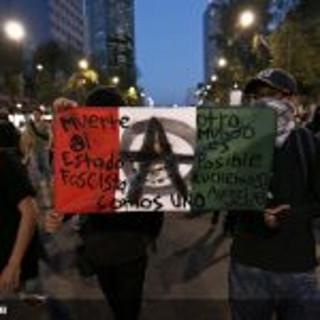

This week on The Final Straw, an anarchist living in Mexico talks about the reign of the MORENA party of Andres Manuel Lopez Obrador (aka AMLO), the new face of capitalism it presents, it’s relation to social movements and indigenous sovereignty and the anarchist and indigenous resistance to the regime. We cover mega-projects being pushed through around the country, the repression of activists and more in this whopper of an episode.
Here’s a great English-language blog based mostly out of Oaxaca that covers struggle in Mexico and across the northern border: https://elenemigocomun.net/
To learn more about the Anarchist Days that our guest spoke on, you can email janarquistas2020@protonmail.com!
The gofundme can be found at https://gofundme.com/Channel-zero-network-2020-fundraiser/ .To check out the video to match the audio you just heard so you can enjoy and spread it around, check out our show notes or at https://sub.media !
. … . ..
Music for this episode by: